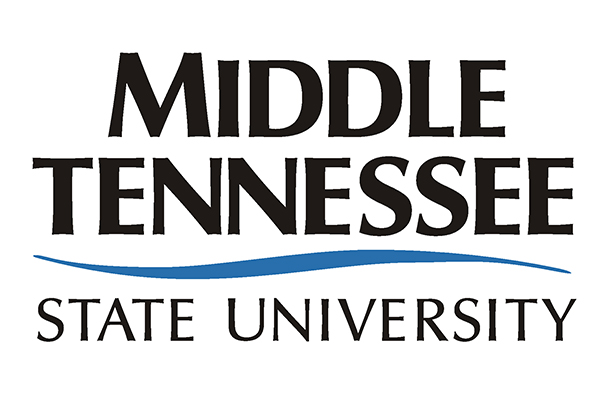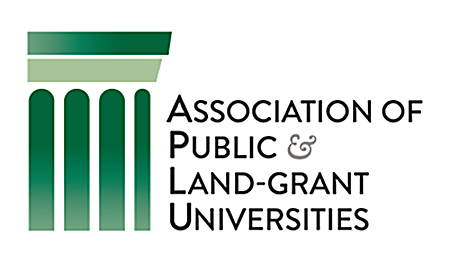Middle Tennessee State University is one of 16 institutions across the country participating in the Association of Public and Land-grant Universities’ Powered by Publics initiative to each receive an additional $15,000 investment and support to advance student-centered transformation.
The cohort of participating institutions will engage in an in-depth institutional needs assessment, share student success data, and receive targeted professional development and technical assistance based on needs in advising, college readiness policy and practice, and digital learning. The Bill & Melinda Gates Foundation is funding the effort.

Dr. Rick Sluder
“It is an honor to be selected for this grant and have the opportunity to work with a cohort of exceptional universities,” said Rick Sluder, vice provost for student success and dean of University College. “More importantly, the supports and technical assistance will allow us to build upon and accelerate our efforts to improve student success outcomes. This is a special opportunity for our faculty and staff to work with leading experts and consultants on matters that directly relate to the education of our students.”
“We’re very pleased to provide the opportunity to 16 Powered by Publics institutions to receive additional resources to enhance advising, support college readiness, and improve digital learning,” said Julia Michaels, associate vice president and executive director of APLU’s Center for Public University Transformation.
“Powered by Publics institutions are laser-focused on collaborating to advance equity, increase degree completion, and share key data and lessons. The 16 institutions participating in this cohort will serve as a model that other universities can draw from as they seek to strengthen their work in this space.”
MTSU’s Quest for Student Success 2013-2016 was launched in 2013 and involved the hiring of 47 additional advisers, the implementation of an advising platform with data analytics, the redesign of key courses and the implementation of learning supports including extensive tutoring and supplemental instruction. Since then, retention and graduation rates have increased to record levels. In Fall 2020, after months of campuswide planning, Quest 2025 was launched.
“Already hard at work in implementing Quest 2025, MTSU will benefit from the assistance provided by this grant that is directly aligned with ongoing initiatives,” Sluder added.
APLU’s Powered by Publics initiative has convened nearly 125 change-ready institutions and state systems within 14 “transformation clusters” — reaching 3 million undergraduate students, including 1 million Pell Grant recipients.
Each cluster is focused on solving different pieces of the student success puzzle as public universities work together to tear down long-standing barriers, eliminate the achievement gap, prepare students to thrive in the 21st century workforce, and collectively increase the number of degrees they award. The clusters are advancing collaborative work in thematic areas of affordability, holistic student supports, and teaching and learning, with equity and data as integral, cross-cutting components.
 The other institutions selected for the effort are: University of Arkansas at Pine Bluff; Clemson University; Illinois State University; Ohio University; Montana State University; New Mexico State University; University of New Orleans; New Jersey Institute of Technology; Rutgers University-Newark; University of South Alabama; Texas Tech University; Tuskegee University; Virginia Commonwealth University; Western Michigan University; University of Wyoming.
The other institutions selected for the effort are: University of Arkansas at Pine Bluff; Clemson University; Illinois State University; Ohio University; Montana State University; New Mexico State University; University of New Orleans; New Jersey Institute of Technology; Rutgers University-Newark; University of South Alabama; Texas Tech University; Tuskegee University; Virginia Commonwealth University; Western Michigan University; University of Wyoming.
The stipend will cover expenses related to participation, in addition to technical assistance and support services from the Bill & Melinda Gates Foundation’s Postsecondary Success network. The institutions started their work in March and will continue it through July 2022.
About APLU
APLU is a research, policy, and advocacy organization dedicated to strengthening and advancing the work of public universities in the U.S., Canada, and Mexico. With a membership of 244 public research universities, land-grant institutions, state university systems, and affiliated organizations, APLU’s agenda is built on the three pillars of increasing degree completion and academic success, advancing scientific research, and expanding engagement. Annually, member campuses enroll 5.0 million undergraduates and 1.3 million graduate students, award 1.3 million degrees, employ 1.3 million faculty and staff, and conduct $49.2 billion in university-based research.


COMMENTS ARE OFF THIS POST